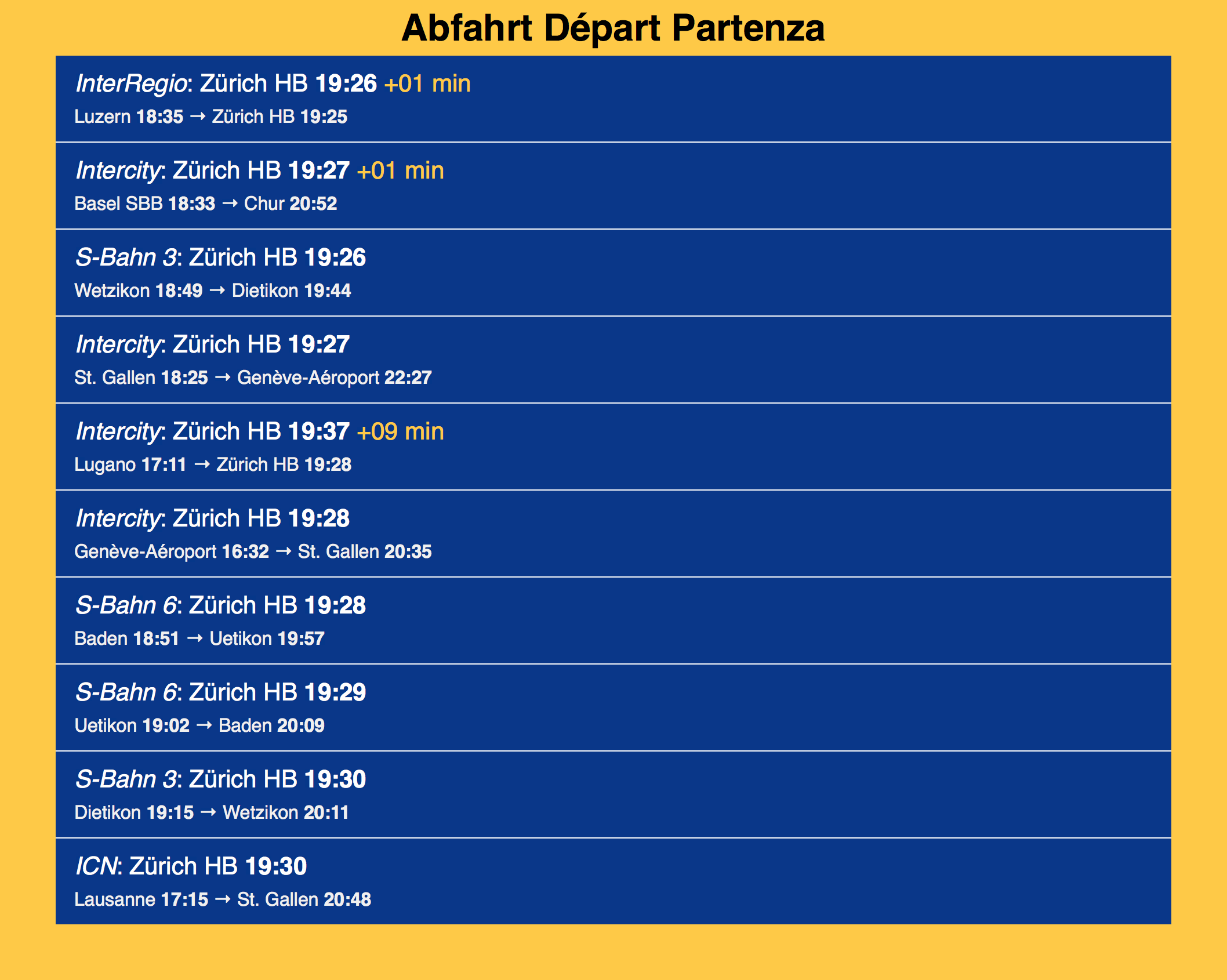The Swiss public transport open-sourced timetables, station information and real-time data. I posed myself a challenge by building my own SBB-schedule as a website within one Saturday.
This is the result. A live version can be found here.
At the moment, I'm running a test instance on a spare laptop in my shared flat's living room. Since I live no 60 secs from the next station, it might be interesting to know any three minutes delay, especially in winter.
Chill opens up with a list of all Swiss stations provided by Bahnhofsliste. After choosing a station, the website changes to an overview screen which presents the next trains leaving the station.
All "meta"-stuff can be found in the root directory (README, tests, license, etc.).
Everything that belongs to the server is located in www.
There's a version folder containing all versions of the website.
The use of this depends on your workflow.
For a small website, it's all right just to use git.
The disadvantage for heavily used sites is, that at the moment of pulling the website is down.
Another workflow could be to have different versions of the site in the versions folder while latest is a symbolic link to the production version.
Updating to the website could then be a single atomic operation of repointing the symbolic link.
cache: Cache for the website. Autogenerated.config: Version dependent configuration.inc: PHP-includes that are included by pages inpublic.lib: The site's library classes (modelling of the transport system, utility classes, …)public: Root of your web server. All requests should end up in this directory. All resources like scripts, stylesheets, scripts and images that should be accessed from the internet belong in here.public/e: Directory for external client-side frameworks, fetched by bower.res: Data-resources (list of stations, mock data).singletons: Objects that are used on all pages but always are the same.templates: Templates for TWIG to render HTML pages.tmp: Temporary folder. It can be deleted on a regular basis Autogenerated.twig_cache: Cache for twig templates.vendor: Repository for "composer".
Update: Point 1. and 7. can be done by executing ./deploy.sh on the command line.
In addition, ./deploy_env.sh creates all folders for the dev-environment and downloads dev-tools like PHPUnit and linters.
-
At some point, you need to fetch dependencies (twig, phpunit). There are two
composer.jsonfiles, one in the root (for unit test environment). The other one in the web server rootwww/versions/latest/(for the template engine). Run the bash commandcomposer update;in the corresponding directory at some point. If in doubt, do it first. -
Navigate into
www/versions/latest(or your version) and executebower installwhich fetches all the user-side dependencies. -
Load everything in
wwwonto a server. -
Point the server's root directory to
www/versions/latest/public/. -
To access trias, you need an API key from opentransportdata.swiss. Get one.
-
Copy the file
www/config/config_default.phptowww/config/config.phpand add your key as value ofOPENTRANSPORTDATA_SWISS_API_KEY. -
Place
www/config/config.phpon the server. You can setproductiontotrueon the server and tofalsein your dev-environment (toggles error reporting, data-mocking, etc.). -
That's it. There might be some errors while generating temporary folders, but that's environment dependent and should easily be solved by creating the folders and giving them the right access rights.
